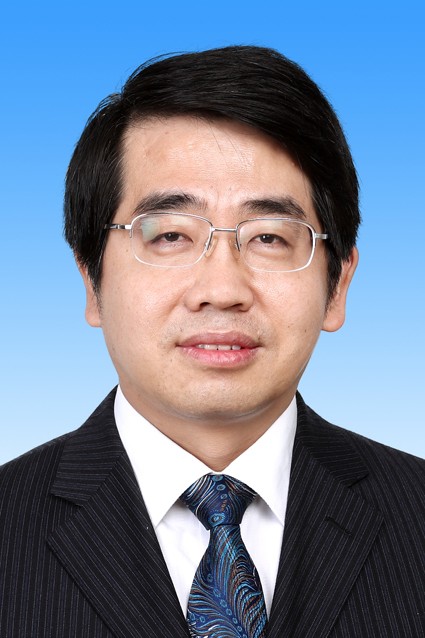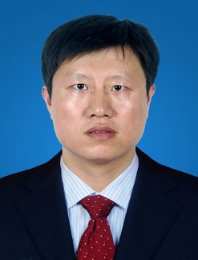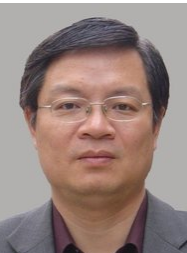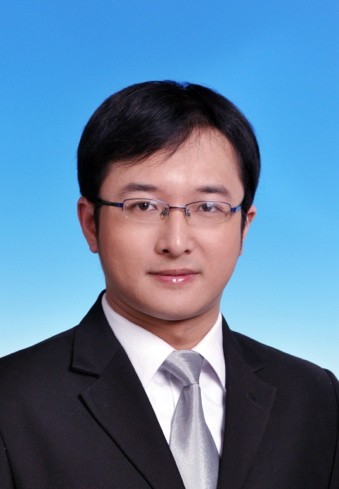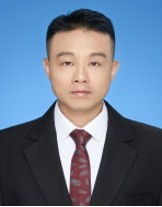
Keynote Speakers
| Prof. Wei HuangAcademician of the Chinese Academy of Sciences, Northwestern Polytechnical University, China Bio: Professor HUANG Wei is an academician of the Chinese Academy of Sciences (CAS), and an International Member of the National Academy of Engineering, USA (NAE). As an eminent scientist in the areas of organic optoelectronics, plastic electronics, intelligent electronics, health electronics, and flexible electronics, Prof. Huang chairs the State Key Laboratory for Organic Electronics and Information Displays (KLOEID), and the State Key Laboratory of Flexible Electronics (KLOFE) and is Chief Scientist of the National Basic (Frontiers) Science Center for Flexible Electronics of China. He is Chair Professor of the Cheung Kong Scholars Program, Winner of the National Outstanding Youth Fund, a distinguished professor of China’s National Important High-level Talents Program, Chief Scientist of the National Basic Research Program (973 Program), the National Key Research Program, and the National Special Program of Disruptive Technologies of China. Prof. Huang is founding Editor-in-Chief of Research, the flagship journal of China Association for Science and Technology, Editor-in-Chief of npj Flexible Electronics, a Partner Journal of Nature Publishing Group. Currently, he is Chair of the Senate of Northwestern Polytechnical University (NPU), China. He also holds the position of Chief Scientist of the Frontiers Science Center for Flexible Electronics, NPU. Prof. Huang is the Immediate Past President of the Federation of Engineering Institutions of Asian and the Pacific, and a Senior Advisor to the President of the World Federation of Engineering Organizations (WFEO). He initiated the NPU-FEIAP Belt & Road Engineering Education Training Center (NFTC) and has built NFTC as a major international cooperation and communication platform for engineering education and science and technology development. His efforts have led to the success of the Africa, Asia, and the Pacific Engineering Education Accord (AAP Accord). Prof. Huang holds honorary doctorates of the University of Sheffield, and the University of Johannesburg. He is a Fellow of Royal Society of Chemistry (RSC), the Optical Society of America (OSA, recently renamed as Optica), Society of Photo-Optical Instrumentation Engineers (SPIE), and Singapore National Institute of Chemistry (SNIC). He is a two-time Second Prize winner of the National Natural Science Award, a four-time First Prize winner of the Outstanding Achievement Award of Higher Education Scientific Research in Natural Science (Scientific technologies), and multi-time First Prize winner of many international, national and local scientific awards, including Jiangsu Provincial Scientific and Technological Award and the Technological, Scientific Progress Award from the Ho Leung Ho Lee Foundation, Hong Kong, and the Chinese Institute of Electronics (CIE) Award in Natural Science. Many of his works are among the Top 10 Progresses in Science and Technology of China’s Universities. Being one of the earliest and most renowned scholars in flexible electronics, especially organic electronics, plastic electronics and bioelectronics, Prof. Huang has enjoyed great reputation as a world-leading scholar for his active engagement in the field of flexible electronics in international community. Prof. Huang is regarded as “the father of electronics” for his unique contribution to the founding and development of organic electronics, plastic electronics and bioelectronics. He has published more than 900 papers on world leading scientific journals such as Nature, Nature Electronics, Nature Energy, Nature Materials, Nature Nanotechnology, Nature Photonics, Nature Communications, Science, Research, npj Flexible Electronics, Advanced Materials, Journal of the American Chemical Society, with over 120,000 international citations and an h-index of 180. He is the most cited Researcher in the fields of physics, chemistry and materials science (Clarivate Analytics). He has held over 1100 patents in the USA, Singapore, and China, etc. Additionally, his book publications include Organic Optoelectronics, Bio-optoelectronics, Organic Thin Film Transistor Materials Devices and Application, Application of Organic Light-Emitting Materials in Biomedicine, OLED Display Technology, and Metaverse etc. |
Prof. Junwei Han IEEE Fellow, Northwestern Polytechnical University, China Bio: Prof. Junwei Han, Dean of the School of Automation at Northwestern Polytechnical University and Fellow of both IEEE and IAPR, holds a prominent position on the editorial board of IEEE TPAMI. Recognized as a "Highly Cited Researcher" by Clarivate Analytics in two distinct fields and a "Highly Cited Scholar" by Elsevier China, his research endeavors span artificial intelligence, pattern recognition, brain-inspired computing, and remote sensing image interpretation. Prof. Han boasts an impressive publication record, with over 150 scholarly articles featured in prestigious journals and conferences like the Proceedings of the IEEE, IEEE TPAMI, CVPR, and MICCAI. His work has garnered over 30,000 citations, reflecting a remarkable H-index nearing 90. Notably, three of his publications have been honored among the "Top 100 Most Influential International Academic Papers of the Year in China." Prof. Han plays a vitalrole on the editorial boards of various domestic and international journals, including IEEE TMM and SCIENTIA SINICA Informationis (SSI), among others. He also serves as an area chair for prominent international conferences like CVPR. Title: AI Empowering Medicine Science: Preliminary Exploration and Practice Abstract: The continuous enrichment and growth of medical imaging data in the new era have formed medical imaging big data, and intelligent interpretation of medical imaging big data has become the key to improving medical standards and benefiting the people with technology. This report interprets the ways in which artificial intelligence technology empowers medical imaging and auxiliary diagnosis from multiple levels and perspectives, and explores how to break through traditional positioning, combine AI advantages, and launch new medical imaging equipment, so that AI can sink to the forefront of imaging and deeply promote the progress of medical technology. |
|
| Prof. Ying TanPeking University, China Bio: Ying Tan is a full professor of Peking University, director of Computational Intelligence Laboratory at Peking University, and the inventor of Fireworks Algorithm (FWA). He worked as a professor of Faculty of Design, Kyushu University, Japan, in 2018, at Columbia University as senior research fellow in 2017, and at Chinese University of Hong Kong as research fellow, and at University of Science and Technology of China in 2005-2006 as a professor under the 100-talent program of CAS. He is the president of the IASEI, and also serves as the Editor-in-Chief of IASEI Transactions on Swarm Intelligence, and International Journal of Computational Intelligence and Pattern Recognition (IJCIPR), the Associate Editor of IEEE Transactions on Cybernetics (CYB), Neural Networks, International Journal of Swarm Intelligence Research (IJSIR), etc. He also served as an Editor of Springer’s Lecture Notes on Computer Science (LNCS) for 60+ volumes, and Guest Editors of several referred Journals, including IEEE/ACM Transactions on Computational Biology and Bioinformatics, Information Science, Neurocomputing, Natural Computing, Swarm and Evolutionary Optimization, etc. He is the founder general chair of the ICSI International Conference series since 2010 and the DMBD conference series since 2016. He won the 2nd-Class Natural Science Award of China in 2009 and 2nd-Class Natural Science Award of Ministry of Education of China in 2019 and many best paper awards. His research interests include computational intelligence, swarm intelligence, deep neural networks, machine learning, data mining, intelligent information processing for information security and financial prediction, etc. He has published 400+ papers in refereed journals and conferences in these areas, and authored/co-authored 18 books, including “Fireworks Algorithm” by Springer in 2015, and “GPU-based Parallel Implementation of Swarm Intelligence Algorithms” by Morgan Kaufmann (Elsevier) in 2016, and received 8 invention patents. Title: Research Progress of Fireworks Algorithm (FWA) & Its Application Abstract:Inspired from the collective behaviors of many swarm-based creatures in nature or social phenomena, swarm intelligence (SI) has been received attention and studied extensively, gradually becomes a class of efficiently intelligent optimization methods. Inspired by fireworks’ explosion in air, the so-called fireworks algorithm (FWA) was proposed in 2010. Since then, many improvements and beyond were proposed to increase the efficiency of FWA dramatically, furthermore, a variety of successful applications were reported to enrich the studies of FWA considerably. In this talk, the novel swarm intelligence algorithm, i.e., fireworks algorithm, is briefly introduced and reviewed, then several effective improved algorithms are highlighted, individually. In addition, the multi-objective fireworks algorithm and the graphic processing unit (GPU) based FWA are also briefly presented, particularly the GPU-based FWA is able to speed up the optimization process extremely. Extensive experiments on benchmark functions demonstrate that the improved algorithms significantly increase the accuracy of found solutions, yet decrease the running time sharply. Finally, several typical applications of FWA, in particular, for big-data application, are presented in detail. |
Prof. Ke Tang IEEE Fellow, Southern University of Science and Technology, China Bio: Ke Tang is a Professor at the Department of Computer Science and Engineering, Southern University of Science and Technology (SUSTech). His major research interests include evolutionary computation and machine learning, particularly in Scalable Evolutionary Computation and Learn to Optimize. He is a Fellow of IEEE and Changjiang Scholar Professor for Artificial Intelligence (Ministry of Education of China). He is also the recipient of a few national and international awards, such as the IEEE Computational Intelligence Society Outstanding Early Career Award, the Natural Science Award of MOE of China, and the Newton Advanced Fellowship (Royal Society, UK). Speech Title: Learn to Optimize Abstract: Optimization problems are ubiquitous. However, the design, or even successful application of an optimization algorithm highly relies on domain knowledge of human experts. Such a design/application paradigm has encountered significant challenge as more complex optimization problems emerges. This talk will introduce how we can follow a new paradigm, namely Learn to Optimize (L2O), to automatically design novel optimization algorithms. Such that we may leverage on computing power, rather than domain experts, to tackle emerging hard optimization problems. |
|
| Prof. Xianguang KongXidian University, China Bio: Kong Xianguang, Ph.D., is a Huashan Scholar, professor, and doctoral supervisor. He completed his undergraduate, master's, and doctoral studies at Northwestern Polytechnical University. Currently, he serves as the Director of the Intelligent Manufacturing and Industrial Internet (Big Data) Research Center at Xidian University. He is also the head of the Key Innovation Team for Industrial Internet Big Data and Intelligent Systems in Shaanxi Province, the Director of the Industrial Internet Technology University Engineering Center in Shaanxi Province, and a member of the Key Laboratory for Industrial Big Data Analysis and Integration Applications under the Ministry of Industry and Information Technology (MIIT). Additionally, he is a member of the Key Laboratory for Intelligent Equipment Digital Twin Technology Innovation and Testing under MIIT. He holds the position of Chief Scientist at the Qinchuangyuan Innovation Platform in Shaanxi Province, Director of the Xi'an Industrial Big Data and Intelligent Systems Engineering Center, Chief Scientist of the Xi'an Intelligent Quality Inspection Innovation Consortium, and Director of the Yulin Smart Energy Big Data Key Laboratory. He is a member of the National Industrial Big Data and Intelligent Systems Branch, the Leader of the Industrial Digital Twin Special Group under the National Information Technology Standardization Technical Committee, and the Co-Leader of the Data Assets Special Group under the same committee. He is also a national expert in industrial machine tools, an expert in Shaanxi Province's Industry and Information Technology Department's Party Group Liaison Service, the Leader of the Shaanxi Provincial Digital Transformation Task Force, a member of the Provincial State-owned Assets Supervision and Administration Commission's Enterprise Informatization Construction Expert Committee, the Director of the Xi'an Small and Medium Enterprise Digital Transformation Expert Committee, an expert for provincial and municipal big data bureaus, an expert in the artificial intelligence (big data) industry chain, a robotics industry chain expert, a provincial 5G expert, the Director of the Shaanxi Industrial Big Data Special Committee, the Deputy Director of the Shaanxi Digital Dual Carbon Special Committee, and a member of the Provincial Intelligent Manufacturing Expert Committee and the Provincial Information Technology Standardization Committee. His research focuses on industrial internet big data and artificial intelligence, industrial digital twins and CPS, industrial software and intelligent systems, industrial blockchain, and digital assets. He has led over 60 national and provincial-level projects, including major national equipment projects, MIIT's intelligent manufacturing and industrial internet projects, the National Development and Reform Commission's big data projects, and major projects under the National Defense Science and Technology Bureau. He has published over 30 SCI papers, obtained more than 40 authorized invention patents, and commercialized 17 invention patents. He has received the National Teaching Achievement Award (First Prize), the Shaanxi Provincial Teaching Achievement Award (Second Prize), and the Shaanxi Computer Society Award (First Prize). He has participated in the development of national standards such as the "Reference Architecture for Cyber-Physical Systems," "Terminology for Cyber-Physical Systems," "Selection Requirements for Industrial Internet Platforms," and "Classification of Industrial Software," as well as team standards like the "Guidelines for Digital Transformation of Small and Medium Enterprises," "Specifications for Enterprise Digital Transformation Diagnosis," "Capability Requirements for Low-Code Development Platforms," "Functional Architecture for Industrial Digital Twin Engines," and "Testing Methods for Industrial Digital Twin Products." He has also contributed to white papers such as the "Data Element Circulation Standardization White Paper," "Industrial Data Standardization White Paper," "Next-Generation Industrial Software Development Report," and the "CPS Guide." He has authored the first national textbook on "Industrial Internet Technology and Applications," as well as books on "Introduction to CPS Systems," "Blockchain Industrial Application Technology," and "Industrial Edge Computing." Title: Large Models and Data Elements Drive the Valorization and Assetization of Industrial Internet Data Abstract:With the advent of data as a high-level factor of production, artificial intelligence (AI) is accelerating its evolution from analytical and decision-making intelligence to generative and cognitive intelligence, providing vast prospects for the value realization and assetization of data in industrial internet. On one hand, AI large models, with their powerful data processing capabilities, deep learning abilities, and self-optimization features, offer robust technical support for new industrialization. They have gradually permeated various aspects of the industrial sector, covering scenarios such as knowledge Q&A, engineering modeling, data analysis, document generation, and code comprehension, rapidly becoming a vital driving force for industrial transformation, upgrading, and innovative development. On the other hand, big data is shifting its focus from the traditional 5V characteristics (Volume, Velocity, Variety, Veracity, Value) to the 5I dimensions (Integration, Interconnection, Insight, Empowerment, and Reuse). Industrial internet is transitioning from interaction and driving to linkage and flow, enabling the aggregation and accumulation of large-scale, high-value data resources. Through AI technologies, data is being assetized and valorized, promoting multi-scenario reuse of industrial data and uncovering its deeper value. The practice of data assetization and valorization completes the construction, development, and utilization of enterprise data assets, facilitating their circulation and operation through industrial internet and other infrastructures, thereby driving the development of digital industrialization. |
